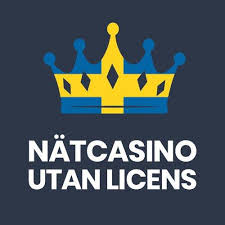Betting On Gamified Fitness Challenges 21
Betting On Gamified Fitness Challenges
The fitness industry is constantly evolving, and one of the latest trends that has captured the attention of fitness enthusiasts and casual gym-goers alike is the concept of gamified fitness challenges. As technology continues to integrate into our daily routines, these challenges have become a popular way to motivate individuals to remain active. However, there’s an exciting twist emerging in this space: Betting On Gamified Fitness Challenges Mostbet betting on these gamified challenges. The combination of fitness, competition, and the thrill of betting has opened up new avenues for engagement and motivation.
The Rise of Gamification in Fitness
Gamification refers to the incorporation of game design elements in non-game contexts to encourage user engagement. In fitness, this translates to apps and platforms that create challenges, competitions, and rewards systems to motivate users to achieve their health goals.
From step-count competitions to virtual marathons, gamified fitness challenges leverage our intrinsic desire for competition and achievement. People can compete against friends or even a larger community, and the foundational mechanics—points, levels, and badges—add an exciting layer to fitness routines.
One notable example is Strava, a social fitness platform that allows users to track workouts and compete against others on designated segments of routes. Users can see how they stack up against their friends or the broader community, fostering a sense of competition and camaraderie. Additionally, platforms like Peloton offer live leaderboards that encourage users to push themselves harder.
As gamification becomes more prevalent, it’s no surprise that innovative companies are looking at how betting can be introduced to enhance motivation.
Your Workout, Your Bets
Imagine you’re participating in a fitness challenge where you place a bet on your performance. This idea is not far-fetched anymore. Betting on personal fitness achievements can be seen as an extension of gamification and can add an exciting and sometimes unpredictable element to already competitive environments.
Here’s how it might work: Participants can place a small wager on achieving specific goals—like completing a certain number of workouts in a month or hitting a target number of steps every day. The stakes could be friendly, like a meal out, or formalized with cash prizes. This adds not only an element of accountability but also the adrenaline that comes with the possibility of winning or losing money based on one’s performance.
Several apps and platforms are already beginning to emerge that integrate fitness and betting. They allow users to create or join challenges while handling the betting component seamlessly.
<h2.Potential Benefits of Betting on Fitness Challenges
Integrating betting into fitness challenges can offer multiple benefits:
1. **Increased Motivation**: Knowing there’s something at stake can push participants to work harder. People often need an extra push to break through plateaus, and the possibility of winning a bet can serve as that motivation.
2. **Accountability**: Committing to a challenge, particularly with a financial incentive, can make users more accountable for their actions. When one bets on oneself, it’s a statement of belief in their ability to succeed.
3. **Community Engagement**: Betting creates a social atmosphere, encouraging participants to engage more with one another. Challenges become more than just personal endeavors; they evolve into community events, further enhancing the social aspect of fitness.
4. **Variety of Engagement**: Unlike standard fitness challenges, betting adds dynamic layers that keep the competition fresh and exciting. Users can switch it up by betting on different challenges or creating leagues with friends.
5. **Creating Revenue Streams**: For companies in the fitness industry, incorporating betting can create additional revenue sources. Advertisers may also find this model intriguing, providing yet another avenue for marketing opportunities.
<h2.Potential Risks to Consider
While the concept of betting on fitness challenges is exciting, it’s essential to approach it cautiously. There are several potential risks to consider:
1. **Gambling Addiction**: Introducing monetary risks into fitness can trigger addictive behaviors in some individuals. It’s important that platforms offer responsible gambling features to monitor usage.
2. **Unrealistic Expectations**: Users might feel pressured to perform beyond their limits, leading to physical strain or injuries. Clear guidelines and supportive environments are crucial.
3. **Integrity of Challenges**: With betting comes the possibility of cheating or dishonesty. Developers need to ensure there are robust verification systems in place to maintain fair play.
4. **Regulatory Concerns**: The legality of betting, particularly on fitness, varies by jurisdiction. Companies must navigate these waters carefully to avoid legal issues.
<h2.Conclusion
The intersection of fitness and betting is undoubtedly an evolving frontier in the health and wellness industry. While gamified fitness challenges have provided numerous motivational benefits, adding a betting component could enhance engagement further, pushing users to achieve their goals in competitive and exciting ways.
However, with great innovation comes greater responsibility. Stakeholders must prioritize user safety, fairness, and community integrity as they explore opportunities in this niche.
In the coming years, we can expect to see more developments in this space, potentially transforming how people approach fitness. As users seek out new ways to motivate themselves and connect with others, the blend of betting and gamified fitness challenges presents a promising avenue for the future of health and wellness.


